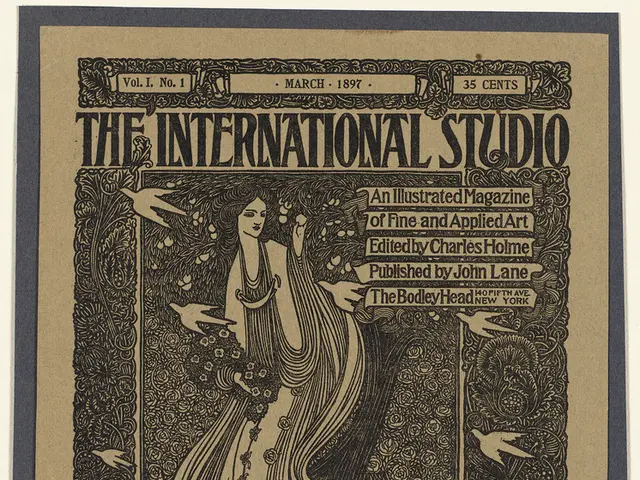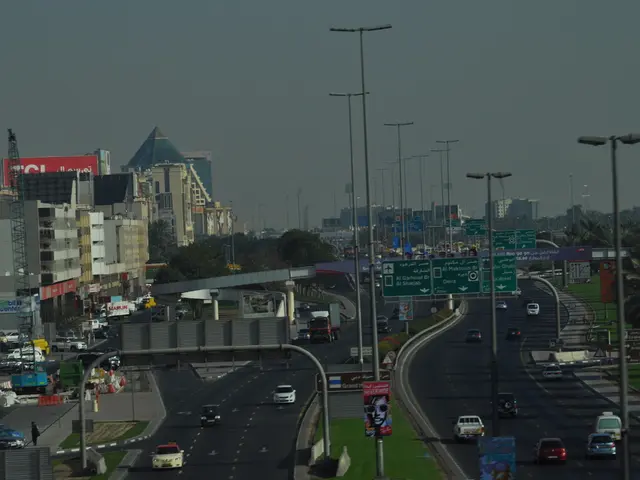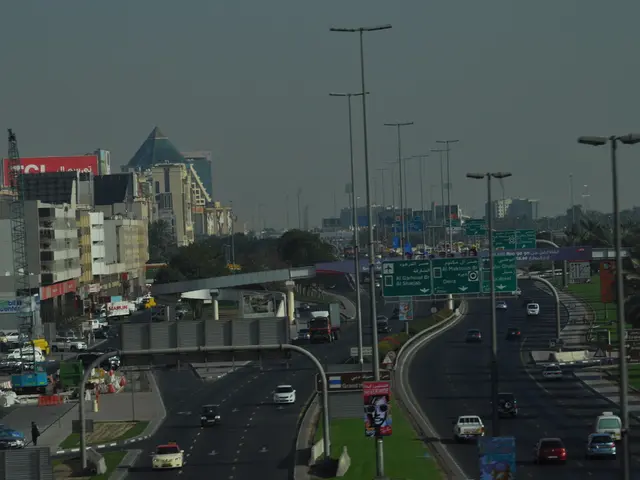Shrinking Space for Free Speech in Kyrgyzstan: A Spiritual and Political Conundrum
Authority figures associated with religion in Kyrgyzstan silence social media influencer, claiming rosy views on pre-marital sex.
The landscapes of both free speech and spiritual discourse in Kyrgyzstan are experiencing a squeeze, with the Central Asian nation's government asserting its influence in unexpected realms, such as personal beliefs and social media discussions.
Social Media and Personal Faith
A social media influencer, Ainura Sagynbaeva, found herself embroiled in a contentious debate over pre-marital sex and religious values after her comments were deemed inappropriate by the non-governmental Spiritual Administration of Muslims (SAMK). Influenced by her TikTok video, Sagynbaeva stressed that practicing safe sex is essential for maintaining health and it wasn't a sin, as long as one used contraceptives.
In response, the SAMK issued a warning to Sagynbaeva, claiming she was eroding national values and violating Islamic principles. The religious authorities did not clarify their intended course of action against the influencer, but some supporters advocated for legal action against her and even called for her arrest under the charge of blasphemy.
To appease her critics, Sagynbaeva promptly removed the controversial video and offered a conciliatory message on Instagram, pledging to no longer delve into the realm of sexology and refrain from commenting on religious matters until she has fully studied the Qur'an.
Backlash and Criticism
The SAMK's move sparked considerable debate on social media, with some praising the agency for standing up against perceived religious transgressions, and others condemning it for infringing upon Sagynbaeva's right to free religious thought. One critic, Tattuububu Ergeshbaeva, a lawyer, argued that the SAMK could take legal action against the blogger for spreading religious discord, but urged religious authorities to respect the blogger's freedom of religious belief and avoid stifling diverse interpretations of Islamic traditions in Kyrgyzstan.
A Tighter Grip on Free Speech and Media
Kyrgyzstan's government has been intensifying its control over media and online content, leading to a progressive suppression of independent voices. In April, the authorities outlawed TikTok on claims that the platform disseminated harmful content directed at young people, even though users can still circumvent these restrictions using virtual private networks.
Recently, parliament also approved a law requiring organizations that receive foreign funding to register as "foreign agents," and critics argue that this law can be exploited to silence watchdog non-governmental groups and independent media outlets.
International Obligations and Human Rights
Kyrgyzstan's actions against media, journalists, and bloggers, including Sagynbaeva, go against the nation's legal obligations and international human rights standards, with the government's primary aim appearing to be the suppression of critical voices and the dismantling of independent journalism.
Internet Freedom and the Future
Although rated as "partly free," Kyrgyzstan's Internet Freedom Score stands at 48 out of 100, suggesting that the country's internet freedom is increasingly under threat. As the government tightens its control over media and online content, the already diminishing space for free speech appears to be contracting even further, potentially stifling discourse on a wide range of topics, including spiritual matters.
- The debate over free speech and religious discourse in Kyrgyzstan extends to various aspects of society, with discussions about health like safe sex practices also becoming subject to scrutiny, such as the case of social media influencer Ainura Sagynbaea.
- The incident involving Ainura Sagynbaeva, who was warned by the Spiritual Administration of Muslims (SAMK) for discussing pre-marital sex, sparked a significant contentious exchange on science-based health practices versus religious values within the realm of general-news.
- The SAMK's involvement in censoring discussions about health and religious beliefs may indirectly impact political discussions, as the suppression of free speech can limit the exchange of ideas and diverse perspectives, which are crucial components of a functioning democracy and crime-and-justice system.








